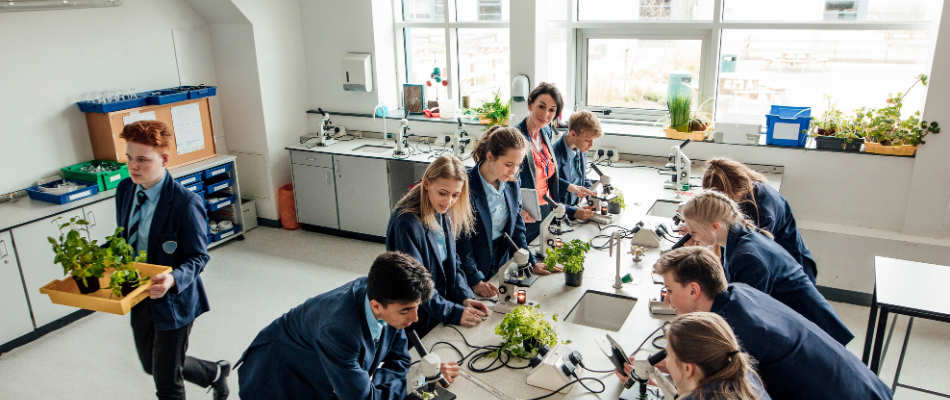Johann Hari writes in her book Stolen Focus, that teens’ focus is interrupted, on average, every 90 seconds. Something as simple as an audible notification can draw focus away from a task. And when humans are distracted, it takes 23 minutes to get back to that previous level of focus. In schools, that means that in a 55-minute class period, multiple distractions across the classroom create an almost impossible task of staying on topic and focused. “When you toggle between two things, you lose cognitive energy and it takes a lot longer to get into deep focus,” says school psychologist Rebecca Branstetter. Teens “don’t realize that multitasking is neurologically impossible.”
Here are some tips and hacks from Dr. Branstetter to help boost your teen’s executive function skills and manage screen time.
- See tech as a tool
Empower your teen to see tech as a tool by encouraging them to find an app or tech tool that will address the specific challenge they are facing - Coach through Task Initiation
Task initiation is one of the big executive function skills interrupted by technology and cell phone use – and your child might need explicit help in making a plan of action – like: “Put your phone away and gather the materials you need to complete your task.” - Identify/Acknowledge Feelings Behind Phone Distraction
Impulse control is another developing executive function skill in adolescence. If your teen is having trouble refraining from checking their phone when working, invite some mindful reflection. Articulating feelings that drive a distraction, like boredom or anxiety, can often mitigate the intensity of the distraction - and this case make it easier for your child to ditch their phone for the moment and focus on their work. - Try the Scrunchie Trick or Airplane Mode
Encourage your teen to put a scrunchie over the front camera to prevent smartphone facial recognition from effortlessly unlocking their phone – or to put their phone on airplane mode while working. - Use a Focus Timer
Have your teen work in 25-minute bursts of focused time with breaks in between. There is also an app called “Forest” that helps users track their focus time with a visual of a tree that slowly grows on the screen. As a “world-incentive bonu,” when a user completes a certain amount of focus time without distraction a real tree is planted through Forest app’s partner, Trees For The Future. - Create a Tech Contract
Make a tech agreement with your teen about expectations for technology, including determining where technology “hot spots” and “cold spots” are in your home. This will help build your teen’s learned executive functioning and anticipatory thinking skills – and tech agreements can be revisited and adjusted as needed. - Keep a Technology Diary
Another useful exercise might be to have your teen create a log of their daily activities to help them become more aware of their habits. By creating a timeline of their day, they can see how much time they spend with and without screens. - Encourage Future Thinking.
Future planning is also a learned executive function skill. Think of motivation as the ability to see a positive emotion down the road and helping your child “do a future sketch” to visualize/imagine what it might look and feel like in the future to complete a task. This also helps build anticipatory thinking. - Reinforce Positive Behaviors
Positive reinforcement that’s specific and sincere is a great motivator for all teens. “I haven’t seen you with your phone all morning,” is a simple and effective example.
In a world filled with distractions, helping teens strengthen their executive function skills is more important than ever. By implementing these simple yet effective strategies, you can support your teen in managing screen time, improving focus, and developing lifelong habits for success. Remember, small changes can lead to big results—so start with one or two hacks and build from there. With patience, guidance, and consistency, your teen can learn to take control of their tech use and thrive in both school and life.

